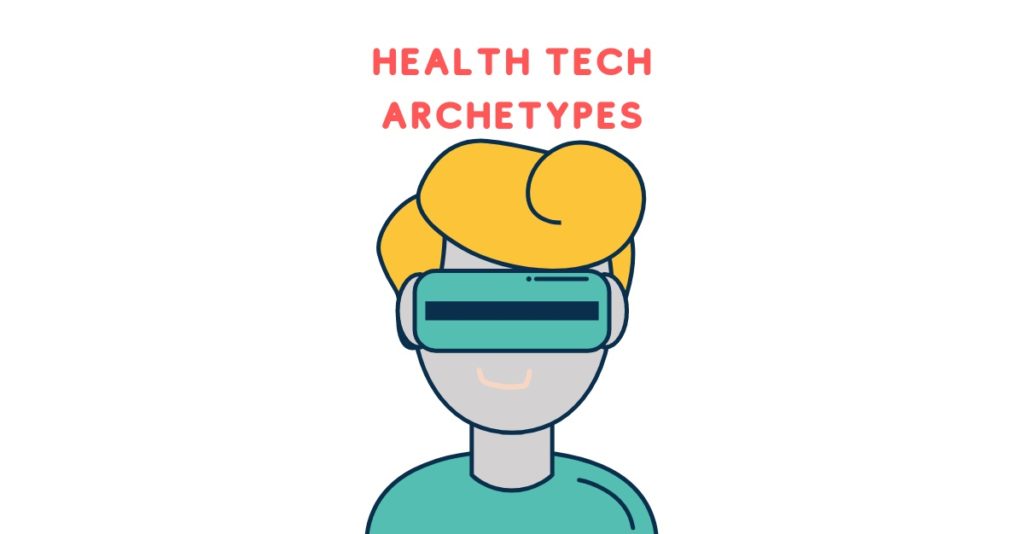
The people in health technology fascinate me, entertain me, engage me, and the best ones truly impress me with their dedication to fixing problems. I’m interested to hear if you’ve had experience with one of these health tech archetypes (or if you might be one, yourself):
The Activist: Those who got into health technology as they might a social activism cause, motivated to increase access to better care for more people, population health initiatives, serving the under-served or over-looked, or improving aspects of health literacy in high-risk populations. They are often able to access funding from cause driven sources. These types have high energy, but often run the risk of fizzling out as interest in a cause dissipates, and struggle with business models that are profitable..
The Disruptor: These health tech types are driven to democratize healthcare and put more decisions in the hands of the individual – encouraging things like instant access to telehealth doctors and Rx products in the same seamless experience – completely circumventing the relationship a person may have with their primary care doctor, who may or may not agree with the approach. Their focus is as much on undoing the compromises people have made in the industry they are disrupting as they are on the audiences they hope to serve.
The Academic: The Academics in health tech pursue intellectual curiosities, often with the highest academic credentials, and unfortunately, often without a clear end game. You’ll notice them focusing on ways to hack the brain, or to have users input lots of daily tracking data hoping to eventually find something useful. These types run the highest risk of ignoring user insights, instead focusing on their own interest in the science deployed. This can lead to the familiar epiphany that they have a technology looking for a solution, rather than a solution to clearly defined audience need.
The Solution Seeker: The most efficient type of health technology people, are the Solution Seekers. These types tend to be motivated to create technology to solve one clearly defined problem. They want to create a better “X’ to replace your “Y”, or to let you better “Z’. Their end game is clear. What they tend to create is usually easy for the intended audience to understand for its purpose, and when and how to use it. They are driven by purpose. They have often had personal frustration with the problem they are trying to solve, so they are tenacious; usually more so than people motivated by a social cause which might wane, or an academic curiosity lacking urgency. Some blind spots for these types can be their goal orientation, desire to have closure, and to move on to another problem, as the thrill of problem solving and delivery is greater for them than the management and optimization of something over time.
The energy in the health technology space is extremely high right now. People are motivated to solve mounting health problems exacerbated by COVID19, social injustice, frustration with the status quo, isolation, and have a desire to find employment outside the shifting corporate landscape. This has pushed many to test their new health technology ideas before start-up accelerators and investors, including some I’ve mentored.
Every archetype can be successful through affiliation with those who complement your strengths and offset your potential weak spots or blind spots. There are many experienced people who can mentor you or be brought on as advisors who can channel the drive each type might have and complement vulnerable aspects of the pursuit of a new health technology solution.
As we look for things to look forward to, it’s time to take a look at what’s percolating in the health tech space, powered by a range of motivations, pursued by those willing to try, and fostered by those of us who love it, and eager to help.
Sternstein Marketing is a marketing and advertising consultancy focusing on small to mid-sized health care companies and start-ups, typically offering deep target audience identification/insights, landscape/competitive analyses, value-proposition definition, positioning, clinical endpoint guidance, marketing/commercialization strategy, and launch execution).